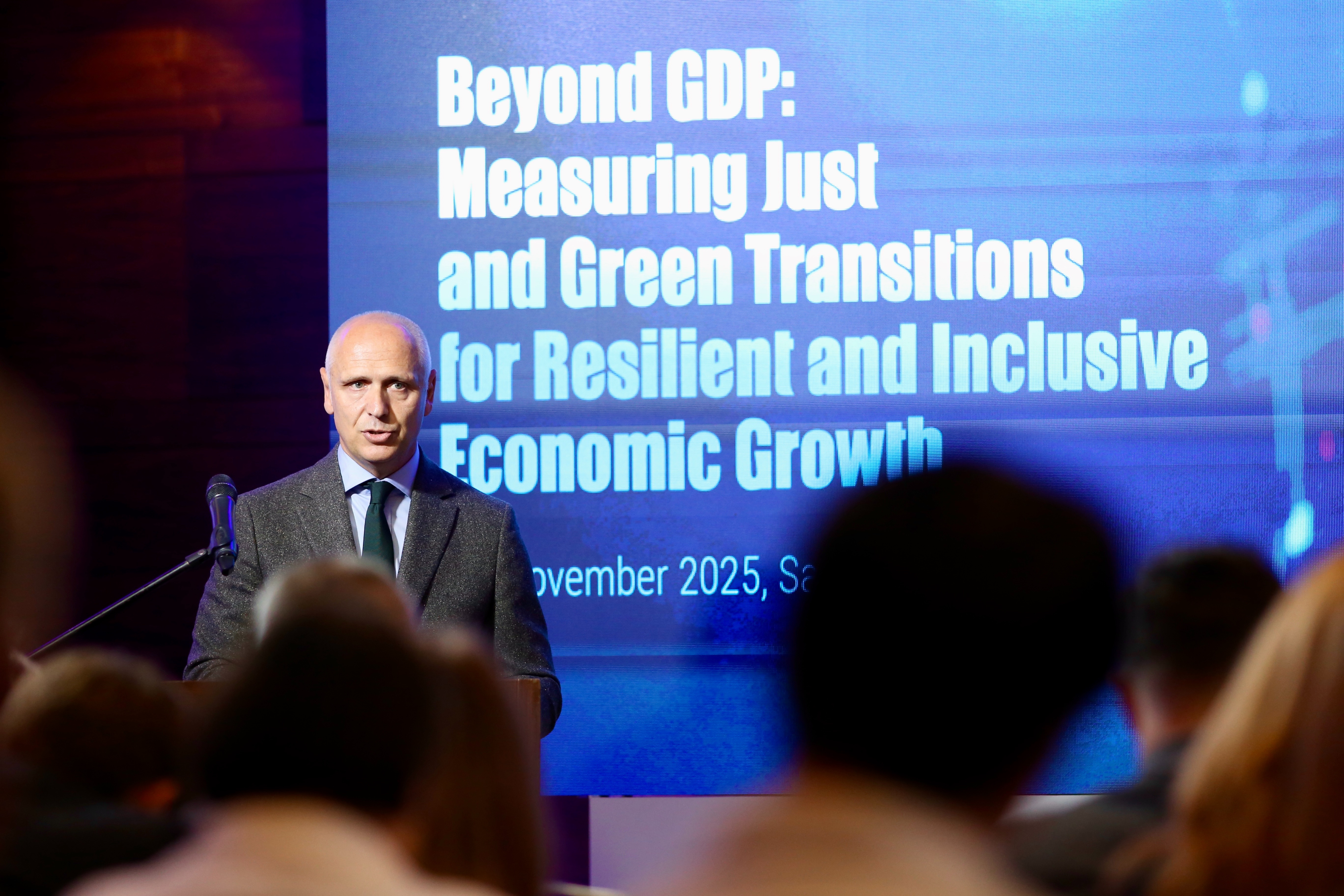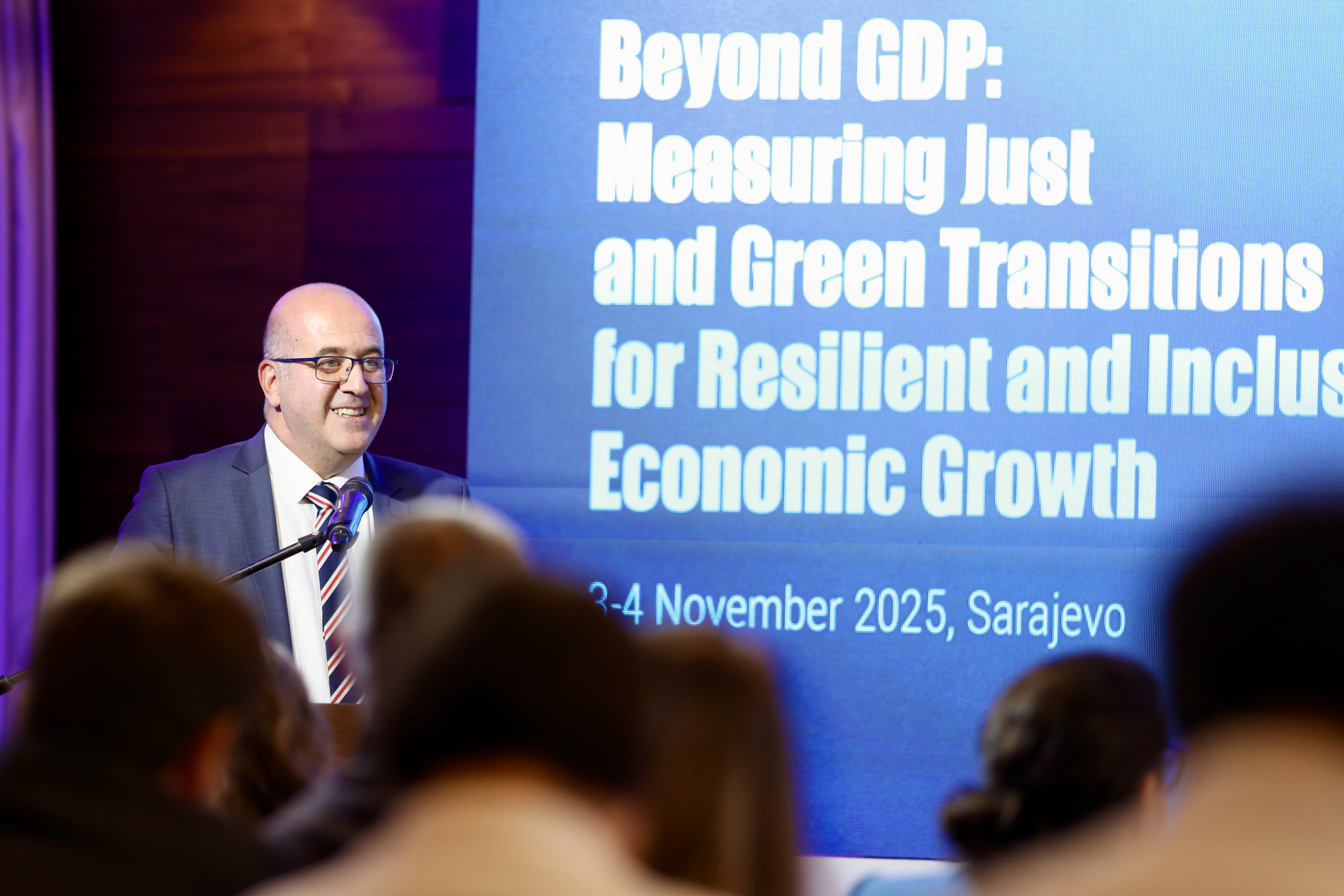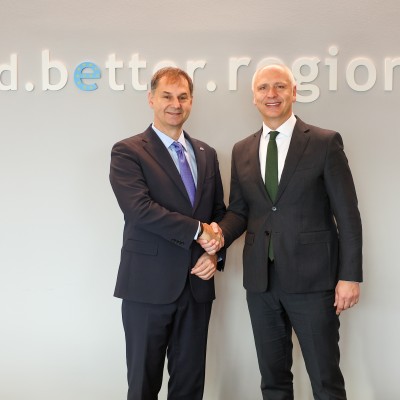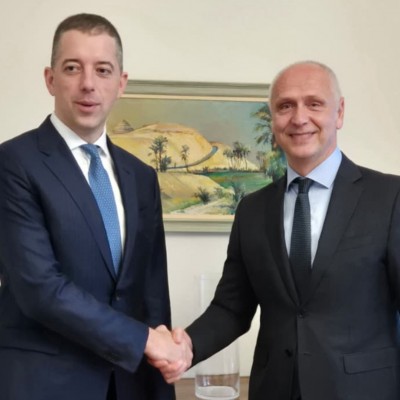RCC brings leading international scholars and researchers to Sarajevo to rethink progress “Beyond GDP”
04 November 2025

RCC Secretary General Amer Kapetanovic opening the academic conference “Beyond GDP: Measuring Just and Green Transitions for Resilient and Inclusive Economic Growth” in Sarajevo on 3 November 2025 (Photo: RCC/Jasmin Sakovic)

Academic conference “Beyond GDP: Measuring Just and Green Transitions for Resilient and Inclusive Economic Growth” took place on 3-4 November 2025 in Sarajevo (Photo: RCC/Jasmin Sakovic)

RCC Deputy Secretary General Umut Ergezer closed the academic conference “Beyond GDP: Measuring Just and Green Transitions for Resilient and Inclusive Economic Growth” held on 3-4 November 2025 in Sarajevo (Photo: RCC/Jasmin Sakovic)
Over 50 papers from 20 countries submitted at the regional academic conference on evidence-based policymaking for inclusive and sustainable growth
Sarajevo, 4 November 2025 – The Regional Cooperation Council (RCC), in partnership with the Regional Studies Association (RSA), hosted the academic conference “Beyond GDP: Measuring Just and Green Transitions for Resilient and Inclusive Economic Growth” on 3-4 November 2025 in Sarajevo. The two-day conference brought together leading international academics, experts and policy makers to discuss how new metrics can better capture people’s well-being, resilience, and social progress beyond traditional GDP measures.
Opened by the RCC Secretary General Amer Kapetanović and RSA Chief Executive Alan Kinder, the event featured a keynote speech by Lorenzo Fioramonti, Academic Director of the Nativa Campus (Italy) and Founding Director of the Institute for Sustainability at the University of Surrey (UK).
“South East Europe is a home to 13 economies and 150 million people. It has a combined GDP of 2.1 trillion USD (in 2015 fixed prices). The region grew by 4.5% in recent years, up 63% from 2008 levels. The Western Balkans, representing about 6% of SEE’s GDP, grew by 3.5% over the past two years and 43% since 2008. The potential for further convergence with the EU average remains significant. Yet, growth alone does not equal prosperity. Measuring convergence with the living standards of an average European remains complex. Studies suggest it could take decades for full convergence. But averages can mislead. Aggregate comparisons obscure local realities. Hence, our focus should be human-centric, grounded in people’s lived experience and not only macroeconomic aggregates,” said RCC Secretary General Amer Kapetanović in his opening remarks.
In preparation for the event, out of over 50 high-quality papers submitted from 20 countries across three continents the 12 top-ranked studies have been selected for presentation across four panels moderated by experts from academia and international institutions, including the European Commission’s Joint Research Centre (JRC).
Throughout the two days, discussions explored how to design inclusive, evidence-based, and policy-relevant frameworks to measure sustainable and inclusive development, well-being, and resilience. Experts presented research on topics such as green transition, social progress, quality of life, regional competitiveness, and informal economies, with particular focus on the Western Balkans.
Among the sessions, the presentation of the preliminary results of the South East Europe Inclusive Growth Index (SEE IGI), developed by the RCC with support from Cambridge Econometric, drew strong attention as a milestone in advancing evidence-based policymaking across the SEE region.
The conference also featured interventions by experts from UNCTAD, the World Health Organization, and leading universities including Erasmus University Rotterdam, University of Barcelona, London School of Economics, and University of Belgrade, among others.
Closing the event, the RCC Deputy Secretary General Umut Ergezer emphasized that the conference reflects the RCC’s commitment to grounding regional cooperation in research and evidence. “Sound data and sound policy go hand in hand. Events like this bridge the gap between academic knowledge and public decision-making, helping our region build a future that is both sustainable and inclusive,” said Ergezer.
The Beyond GDP Conference has been organised within the framework of the South East Europe (SEE) 2030 Strategy and the RCC’s Strategy and Work Programme. It is a part of the SEE2030 Strategy, aiming to promote sustainable development, inclusion, and well-being across South East Europe.



